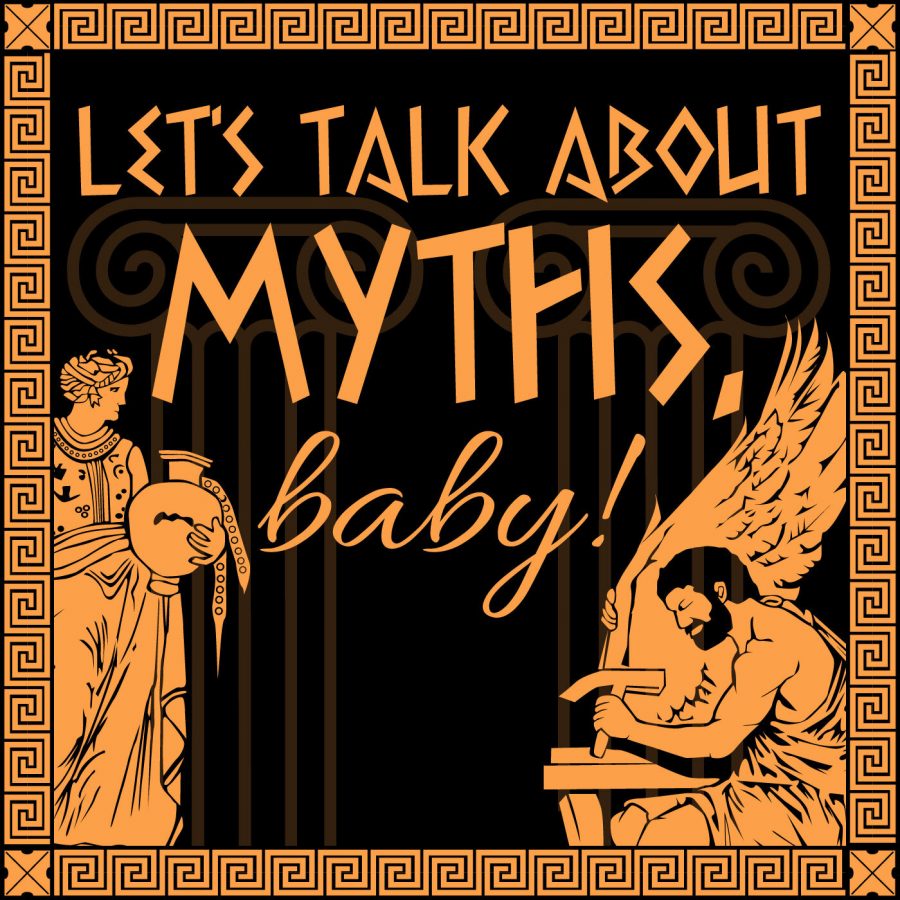Myths, Misogyny and More: Let’s Talk about Myths, Baby Provides a Modern Voice to Age-Old Stories
October 15, 2021
Percy Jackson along with my fifth grade socials studies teacher did a good job of hooking me on Greek Mythology, but as I got older I wanted more. More content, more detail, more aged-up. Let’s Talk About Myths, Baby by Liv Albert became my go-to podcast for my drive home.
Liv has a variety of episodes, all centering around Greek and occasionally Roman mythology. She covers gods and heroes and retells ancient Greek plays and epics such as Aristophanes’ Lysistrata and Homer’s Iliad. The mini episodes range from 10-15 minutes while the regular episodes are around 25-40.
Her approach is what makes the show unique. Liv is a classics major, but more importantly she is a raging feminist; instead of just retelling the myths, her show consists of information plus commentary. For a modern audience, reading old classics or stories can be uncomfortable at times because of blatant misogyny or racism or other discrimination. Often, these things are explained away with ‘that’s how it was back then.’ Liv takes the time to call out misogyny, and highlight the oppression of the patriarchy in Ancient Greece along with modern day. She doesn’t sugar coat rape or make light of the use of women as trophies.
In addition to her feminist commentary, she doesn’t hesitate to tell Queer stories of Ancient Greece – something often avoided when covering history – and sporadically reminds the audience that the West is not the pinnacle of civilization.
Though she criticizes the characters often, Liv still loves the stories. These intricate tales both made and reflect a civilization. The ingenuity of the Ancient Greeks is astounding.
This passion for the subject combined with modern incite is what makes Liv entertaining. While many concur (the podcast has 4.7 out of 5 stars on Apple Podcast with 3,500 ratings), it is definitely not one size fits all.
While many of the 5 star ratings praise her for her political commentary and feminist point of view, the lower ratings criticize for the same thing. Though some of those may be grounded in misogyny, it is true that there are other ways to tell myths. A more straightforward retelling would describe the myths without the opinion of the storyteller.
When you listen to Let’s Talk About Myths, Baby you are signing up for that commentary; those who do not enjoy that style can easily find other mythology podcasts. Aside from those debates, she has good sound quality and storytelling abilities. Though both get better further into the podcast, the early episodes are worth the listen.
Besides being entertaining and good quality, the podcast does a good job of conveying the stories – particularly the epics. I went into the podcast with a varying level of knowledge on Homer’s epics and Virgil’s Aeneid, and I got something different out of each of her retellings.
The Iliad I had studied in fifth grade using a kid’s version of the tale. I knew the outline of the story, and I found that her 12-episode series filled in the rest.
The Odyssey, on the other hand, I had read a full version of a few years prior. Several times I almost stopped listening to her retelling as I already knew the story well. Her version did not bring the epic to life any more than the text (though it did remove bits such as the long lists of gifts), but in the end I stuck with it as I found her commentary worth while. In addition, by listening to her version I got other information that was not in the text, such as a deeper dive into Circe and other versions of Penelope’s time in Ithaca.
The Aeneid I approached with no knowledge except for who Aeneas was. Though it was exciting to learn the story from her, I did find those episodes slightly harder to follow than the ones on Homer’s epics. This is sometimes true with her episodes; I don’t listen to the podcast on tougher drives because I am not able to follow the story. This, however, is hard to avoid without removing the intricate details added by the Greeks and Romans.
After several years I have not gotten tired of her rants or side comments; it’s what makes the podcast entertaining. She – like the Greeks – has many insights and opinions, and uses them to bring the century-old stories to life and into the lives of anyone willing to listen.



